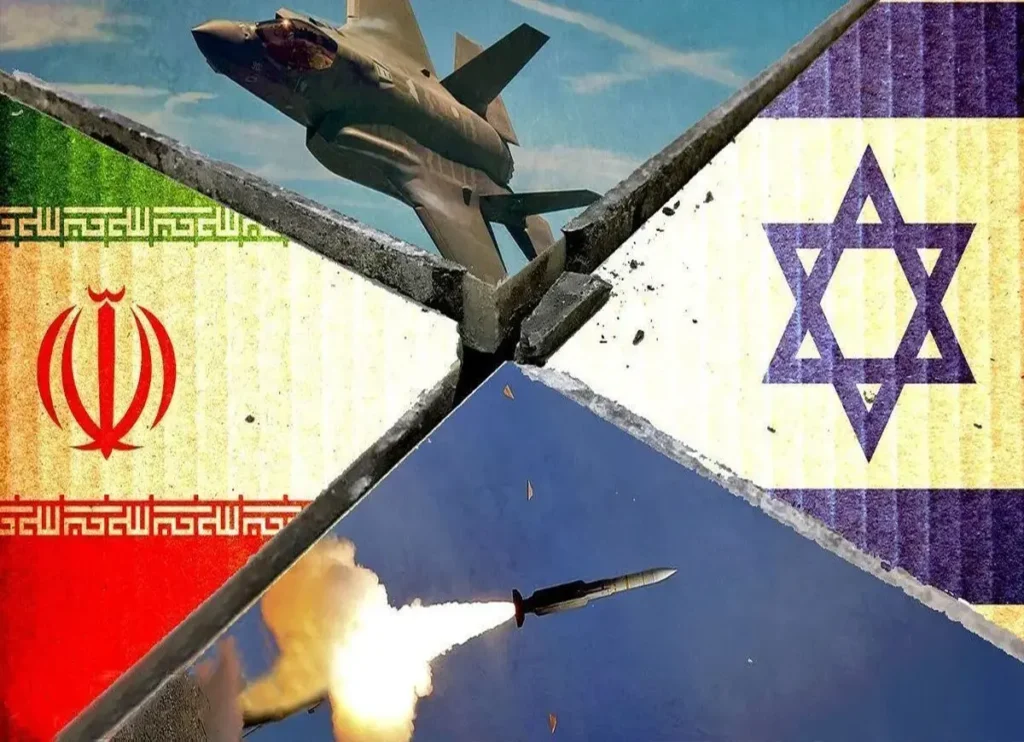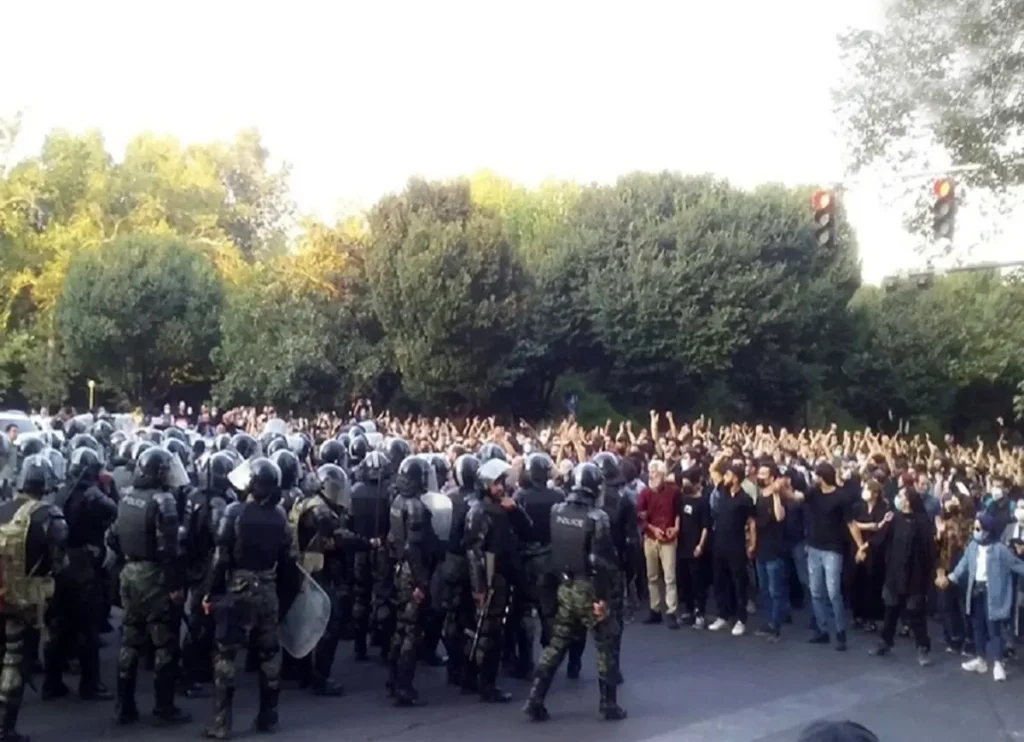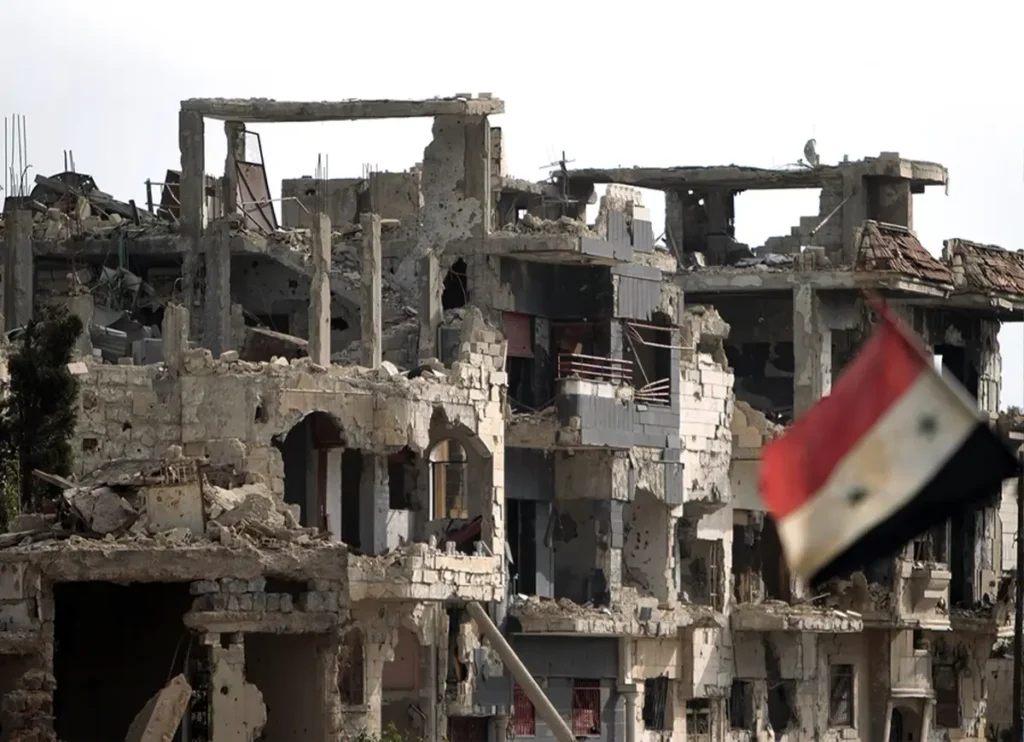Statement No. 1
Azerbaijan Democracy and Development Association (ODJAQ)
Israel–Iran Military Conflict
Initial reports from the battlefield indicate that the military capability of the Islamic Republic has proven extremely vulnerable in the face of this attack, and that the killing of senior the Islamic Revolutionary Guard Corps (IRGC) commanders and the destruction of defense infrastructure mark Israel’s tactical superiority at the beginning of the conflict.
Within this framework, the views of the Azerbaijan Democracy and Development Association (ODJAQ) are as follows:
1. The Root of the Crisis
While we condemn the military aggression against Iranian territory, we emphasize that the roots of this crisis have not formed solely beyond Iran’s borders. They are a direct consequence of the Islamic Republic’s adventurous, militaristic, and tension-provoking policies.
Decades of threats to destroy Israel, a lack of transparency in nuclear programs, persistent interference in regional conflicts, and support for non-state armed groups have turned the Islamic Republic into one of the main sources of instability in the Middle East.
2. War Is Not a Solution; The People Are the Victims
We believe that war and violence can never be a lasting solution to political disputes.
Regional security and peace can only be achieved through international dialogue, respect for the sovereignty of nations, and abandoning interventionist and aggressive policies.
At the same time, history shows that foreign wars are neither a reliable path to democracy, freedom, or development, nor a low-cost way to change authoritarian regimes.
The continuation of this conflict could lead to the destruction of infrastructure, the expansion of humanitarian crises, and a sharp rise in civilian casualties.
Amid all this, the people of Iran, with all their ethnic, linguistic, and cultural diversity, will be the main victims of war.
Therefore, our clear and humane demand is for an immediate cessation of hostilities, the beginning of responsible negotiations, and for the Islamic Republic to comply with international norms and obligations.
3. A Message to the People of Iran: The Transitional Period Requires Collective Responsibility and Local Institution-Building
If the war continues, there is a real possibility that the upper structures of power will collapse, and even that the entire Islamic Republic system could fall.
Such a situation would bring the country into a sensitive, multidimensional, and high-risk transitional period, one that could contain both the seeds of chaos and the beginnings of a new order.
In this process, Iran’s diverse nationalities including Turks, Baluchis, Kurds, Arabs, Persians, Turkmen, Lors, and others will play an irreplaceable and historic role.
For decades, the ruling system has weakened or destroyed independent institutions and suppressed any form of civic self-organization.
Therefore, the responsibility for maintaining order, social stability, and rationally overcoming this crisis now rests on the shoulders of the people of Iran.
Accordingly:
- All national groups of Iran must act with vigilance, self-restraint, and social responsibility to avoid falling into chaos or ethnic and local conflicts.
- The creation of local civic institutions, social councils, community associations, and autonomous aid networks must become an urgent priority for local communities to fill administrative and governance gaps.
- These institutions can become the foundational cells of future structures built on justice, democracy, decentralization of power, and respect for national and linguistic diversity.
- Solidarity within nations, cooperation among nations, and the avoidance of rivalry during a power vacuum are the keys to a successful transition out of the crisis.
4. A Message to the People of Azerbaijan
At this historic and critical juncture, we, the people of Azerbaijan, though we have had no role in initiating this conflict, now find ourselves inevitably affected by its consequences.
The current situation has been imposed upon us by both domestic and foreign actors, but the responsibility for navigating this period consciously rests upon us.
We must recognize that in every historical crisis, opportunities and threats appear simultaneously; a nation that acts with unity, rationality, and organization can determine its own destiny.
Our strategic goal is to achieve democracy and sustainable development with minimal cost, through the establishment of a democratic, secular, and decentralized system based on the fair distribution of power and wealth.
In this context, the protection of the national, linguistic, political, and cultural rights of Turks in Iran, particularly in Azerbaijan, is our highest priority.
The Azerbaijan national movement, with all its strengths and weaknesses, must now act with awareness, internal solidarity, and optimal use of its capacities to achieve its historic goals.
We call on the people of Azerbaijan to preserve calm, public order, and political vigilance, to avoid internal tensions, sectarian divisions, or security provocations, and to prepare themselves for the transitional period and the building of decentralized democratic structures.
Azerbaijan Democracy and Development Association (ODJAQ) 13 June 2025


